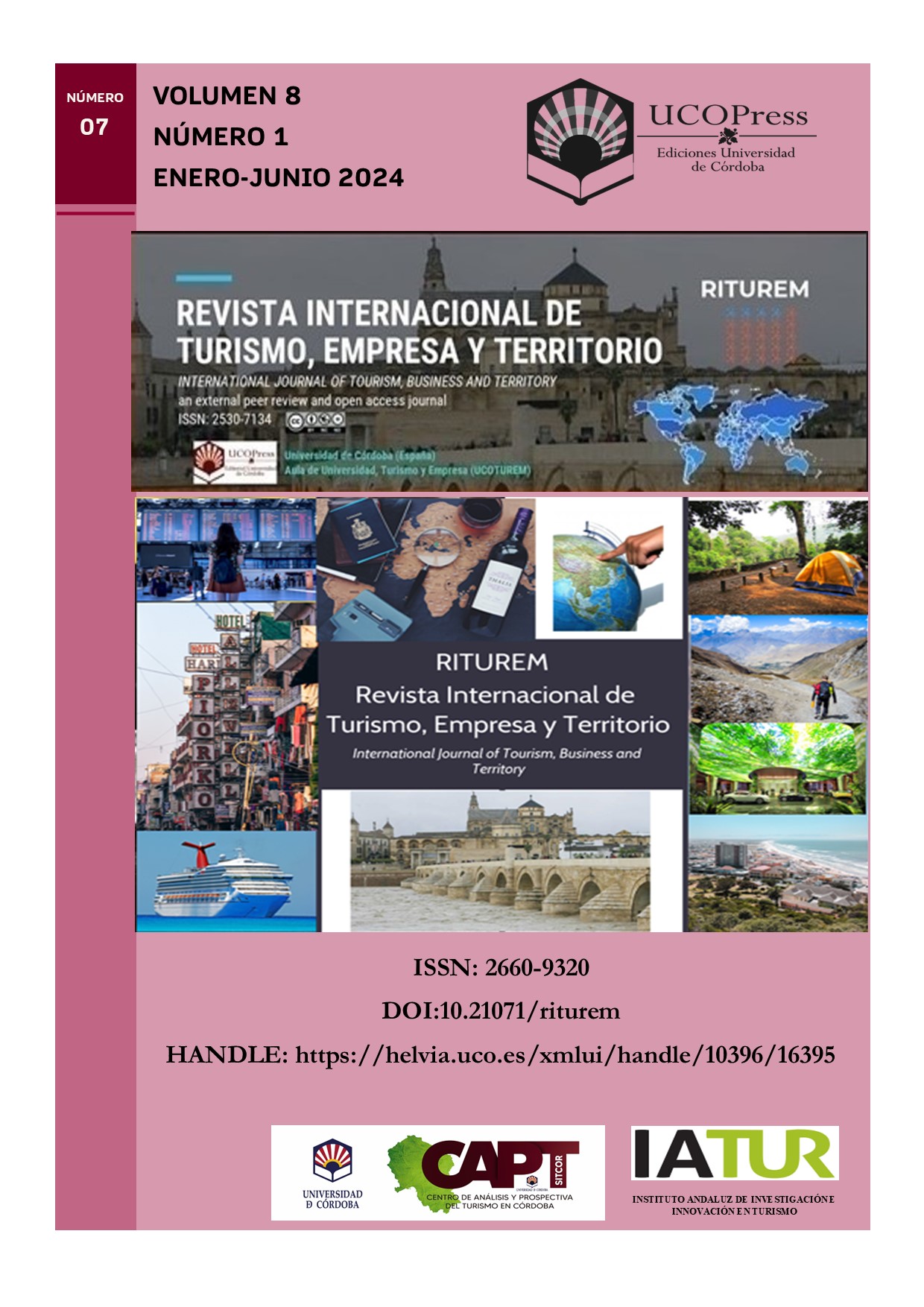Advantages of the hotel digitization process: case and experimental study
Main Article Content
Abstract
The digitization process in the tourism sector and, specifically, in the hotel sector, has been carried out for some years, although the quantification of the benefits derived from it is not usual in scientific environments. Most hotel chains, and also independent hotels, have evolved from a manual and analog management system to a centralized software that optimizes all operations, reducing workload and errors. The hotel industry is increasingly prone to this improvement in operations as a result of digitization, which includes broadband access and management programs. This research uses an exploratory methodology (case study), experimental (real implementation of digitization processes) and the qualitative technique of in-depth interviews and content and quantitative analysis of the survey (secondary data from the hotel establishment). The impact of digitization in a hotel located in Tarragona (Spain) is analyzed. Data is collected through interviews with staff members, as well as using data from customer surveys and analysis of hotel financial records. The results reveal that the digitization of operations leads to more efficiency, cost reduction and improved customer satisfaction. The centralized system allows staff to manage reservations, inventory and billing in real time, improving decision making and control over operations. It is concluded that the operational and financial improvements are significant, and that digitization is the way forward for the hotel industry to improve operations and financial performance.
Keywords: Broadband Society, digitization, tourism, connectivity, management, operations, efficiency, hospitality.
Downloads
Article Details
Copyright Notices Proposed by Creative Commons
Proposed policy for journals offering deferred open access
Those authors who have publications with this journal, accept the following terms:
1. The authors will retain their copyright and guarantee to the journal the right of first publication of their work, which will be simultaneously subject to the Creative Commons Recognition License CC BY-NC 4.0 (Creative Commons — Attribution-NonCommercial 4.0 International — CC BY-NC 4.0 ) hird parties to share the work provided that its author and its first publication is indicated this journal and no commercial use is made.
2. Authors may adopt other non-exclusive licensing agreements for the distribution of the published version of the work (e.g., deposit it in an institutional telematics file or publish it in a monographic volume) provided that the initial publication is indicated in this journal.
3. Authors are allowed and recommended to disseminate their work over the Internet (e.g. in institutional telematics files or on their website) before and during the submission process, which can produce interesting exchanges and increase citations of the published work. (See The effect of open access: http://opcit.eprints.org/oacitation-biblio.html.
